Rohingya repatriation at a crossroads
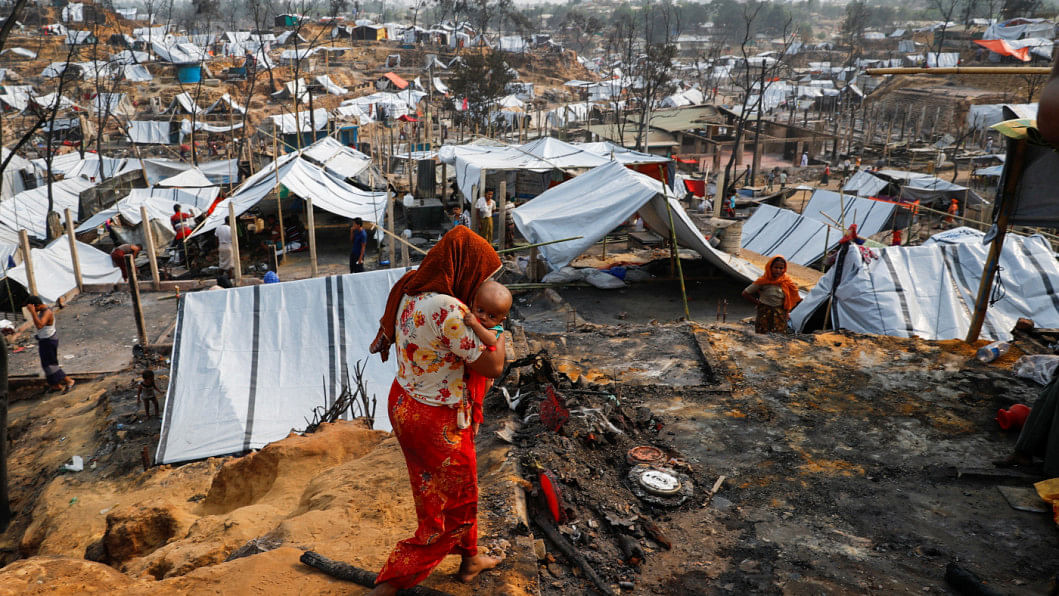
As the war in the Middle East continues and escalates unabated, it is time to reflect on the potential fallout from festering refugee problems, including the unresolved Rohingya repatriation programme.
The history of Palestine is a lesson for all. The British government and its allies decided in 1917, through the Balfour Declaration, to provide the Jewish people with a homeland by implanting them among the Arabs in Palestine. That was the catalyst for the Nakba—the ethnic cleansing of Palestine in 1948. In almost identical fashion, the military and their cohort in Myanmar pushed more than a million Rohingya into Bangladesh. Now, it is time to take a fresh look at the Rohingya crisis that has been brewing in Bangladesh and make a renewed effort to expedite their resettlement in Myanmar.
The interim government has promised to prioritise Rohingya repatriation, and Chief Adviser Professor Muhammad Yunus has repeatedly sought international help. Various advisers have visited China and held meetings to revive the Kunming Understanding, but things remain at a standstill. Since the interim government took over, hundreds of thousands more Rohingya people have crossed into Bangladesh. On the positive side, a "high-level meeting" on the situation of Rohingya Muslims and other minorities in Myanmar is scheduled for September 30 this year to be held at the UN headquarters in New York. At the urging of the CA during his visit to the UN in September 2024, the General Assembly adopted a resolution on November 13, 2024, to convene a high-level conference within this year on the Rohingya situation in Myanmar. But it is difficult to pin much hope on the outcome of this conclave.
In the meantime, there is much talk about repatriation emanating from the interim government. During a visit to Bangladesh, UN Secretary-General António Guterres visited the Rohingya camps and expressed his solidarity with the refugees. The CA, alongside Guterres, pledged to work towards a future in which Rohingya people can celebrate Eid in their homeland in Myanmar's Rakhine state next year. Given that elections in Bangladesh will be held early next year, the interim government will likely need to work on an expedited schedule to accomplish this before transferring power to the next prime minister.
It is laudable that the interim government has given repatriation of the Rohingya high priority. During his trip to London earlier this month, Dr Yunus warned that the current state of affairs is grim. He even mentioned that the plight of the Rohingya should be a reason for alarm and warned that, "if there is no hope for them, this might lead to an explosion."
I will now turn to a few ideas on the repatriation issue. In light of the current global environment, it is difficult to foresee much progress before the national elections. Hopes were raised when the interim government and the press reported that the Myanmar authorities had confirmed the eligibility of 1,80,000 Rohingya refugees for repatriation. But it is now clear that this is an illusion. In the past, one obstacle has been the unwillingness of refugees to return unless certain conditions are met. And there are other roadblocks to the process.
As noted earlier, China can—and needs to—play its part in facilitating repatriation. China is a powerful and influential patron of the military government in Naypyidaw, as well as a long-standing ally of Bangladesh. However, our diplomats have not been unable to persuade China to exercise more of its influence over Myanmar. China's approach, which could be described as "transactional," prioritises economic and strategic interests. Accordingly, its role in the Rohingya crisis has fluctuated.
Ye Myo Hein, a Chinese scholar at the Wilson Centre in Washington, DC, warned in a recent paper: "As Western interest in Myanmar has waned, China has seized the opportunity to expand its strategic footprint...It now holds considerable sway over key actors on all sides of the conflict and has systematically sidelined Western influence by alienating groups aligned with the West."
Deng Xijun, the Chinese special envoy for Asian Affairs—Beijing's point person for Myanmar—joined the junta chief Min Aung Hlaing and other international guests at the 2025 Peace Forum, which began on June 25 in Naypyidaw. Deng indicated that Myanmar may take back the Rohingya living in Cox's Bazar to their own villages in North Maungdaw and nearby locations, instead of relocating them to camps or "model villages" as previously planned.
One must remember, however, that the Chinese initiative is tied to its economic interests and investments in Rakhine. The China-Myanmar Economic Corridor (CMEC) is a key component of Beijing's Belt and Road Initiative (BRI), linking China's Yunnan Province with Myanmar's vast energy reserves, natural resources, and access to the Indian Ocean.
The end result of all this is that Bangladesh must take a long-term view and appoint highly skilled diplomats to navigate these waters and negotiate with both China and Myanmar.
Bangladesh welcomed the recent donation of food grains and other edibles for the Rohingya refugees, though it is merely a drop in the bucket. It comes at a critical time: international contributions are dwindling, and July marks the beginning of the lean season, when food shortages hit hardest. Dr Yunus, in a recent speech, alluded to this and noted that the UN food ration will soon be halved.
The takeaway from the recent flurry of activity was summed up clearly by Guterres for the world to hear. During a press encounter at the end of his trip to the camps in Cox's Bazar, he said he had heard "two clear messages: First, Rohingyas want to go back to Myanmar; and second, they want better conditions in the camps." The international community must take notice and facilitate the repatriation of the Rohingya refugees to their homeland.
Dr Abdullah Shibli is an economist and employed at a nonprofit financial intermediary in the US. He previously worked for the World Bank and Harvard University.
Views expressed in this article are the author's own.
Follow The Daily Star Opinion on Facebook for the latest opinions, commentaries, and analyses by experts and professionals. To contribute your article or letter to The Daily Star Opinion, see our submission guidelines.

 For all latest news, follow The Daily Star's Google News channel.
For all latest news, follow The Daily Star's Google News channel. 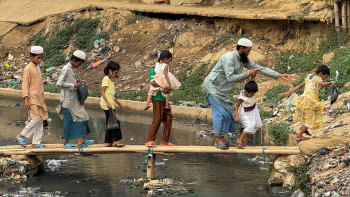
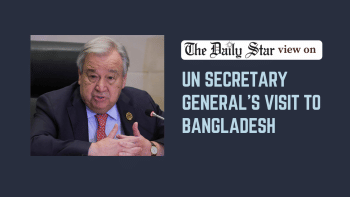



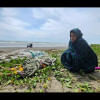
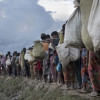



Comments